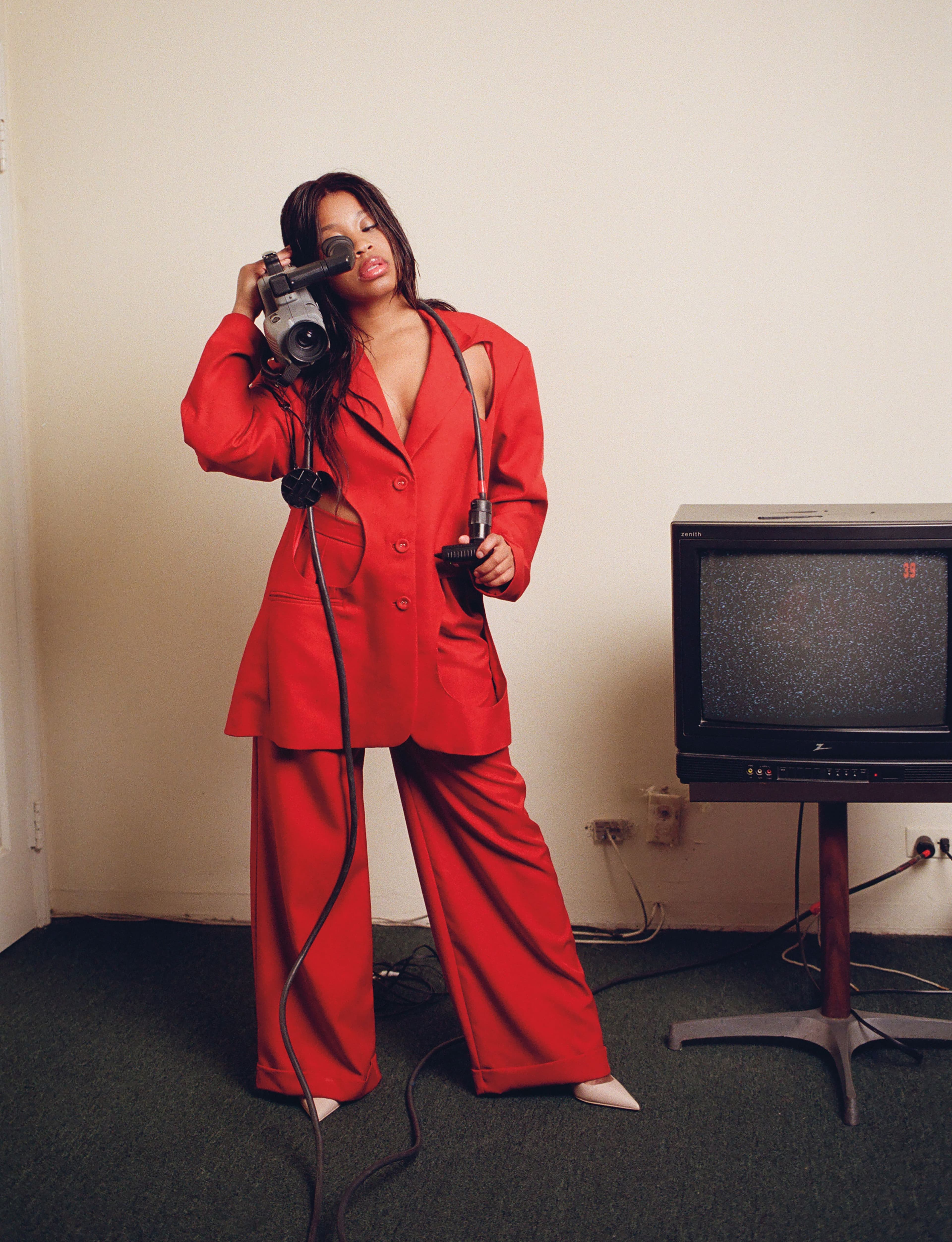
All clothing by Alejandra de Coss. Shoes by Valentino.
Dominique Fishback Stands Up for Her Community
It’s easy to feel a sense of familiarity with Dominique Fishback. Having starred as the caring Robyn in the Apple+ series The Last Days of Ptolemy Grey and Deborah Johnson, the gracious and steadfast wife of Daniel Kaluuya’s title character in Judas and the Black Messiah, the majority of the characters she has played have been charismatically approachable, evoking a comfortable feeling of amenability when in her presence. Fishback’s own friendly and warm personality only serves to boost this image.
Her latest project, however, offers a new lens on the 32-year-old actor. Swarm is the newest venture from Donald Glover and his Atlanta co-executive producer Janine Nabers, and follows the journey of Dre (Fishback), who becomes increasingly obsessed with a Beyoncé-inspired pop star, Ni’Jah, and embarks on a killing spree. Upon its release last month, the show was an immediate hit—with co-stars like Chloe Bailey, guests including Billie Eilish and Paris Jackson, and a writers’ room including Malia Obama, the headline-grabbing show has been billed as a story about the dangers of obsessed fandom and a woman’s descent into desperate devotion to her favorite pop star.
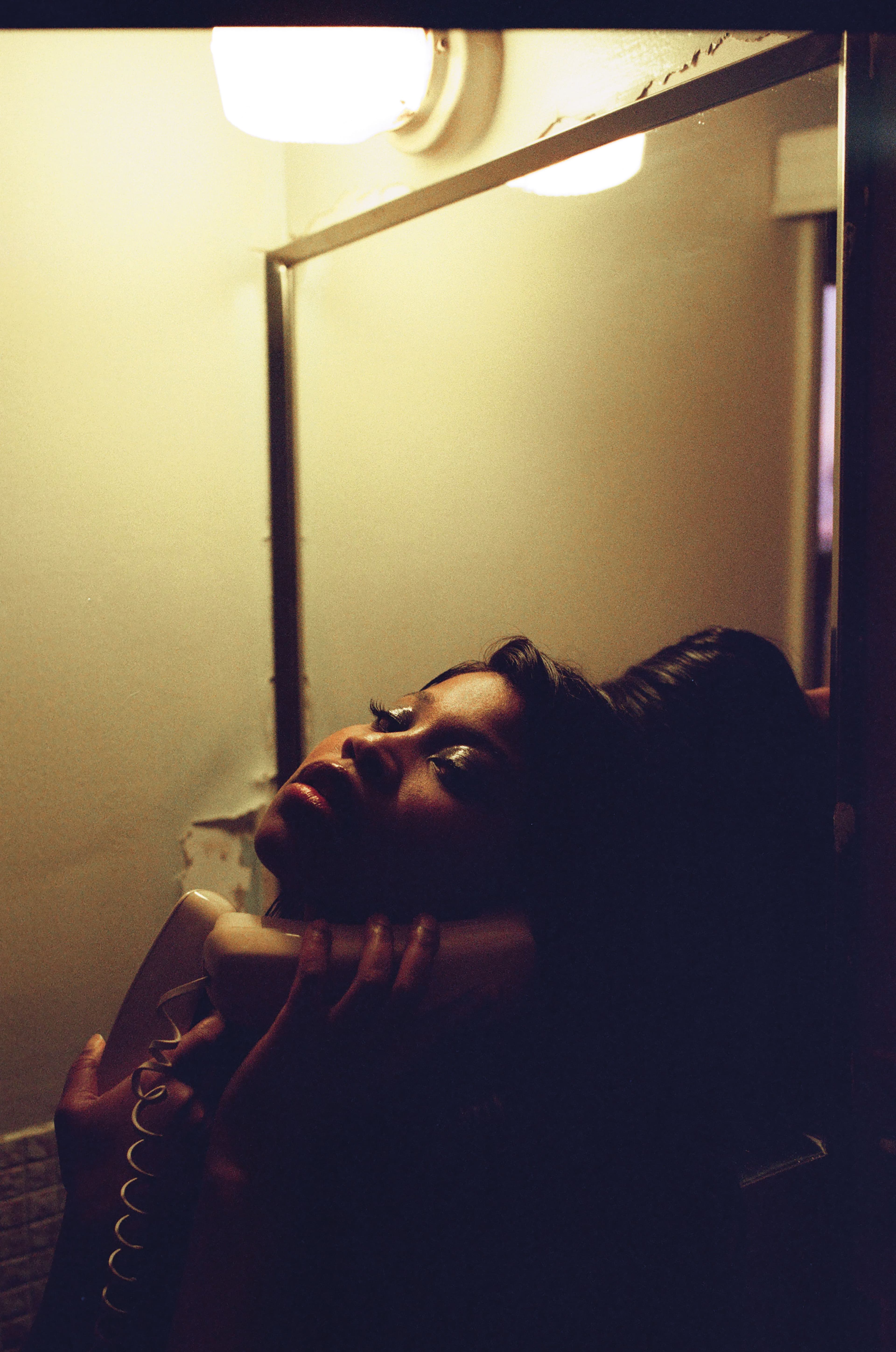
Dress by Toit Volant
But beneath the buzz and pop culture æsthetics is a tale about a deeply heartbroken woman who finds herself adrift after losing her best friend and former foster sister, Marissa (Bailey), who commits suicide after discovering her boyfriend’s infidelity. In the first episode, Dre finds herself at Marissa’s boyfriend’s home and impetuously murders him, kicking off an odyssey across America that follows Dre as she transfers her grief into a violent rage towards anyone who doesn’t worship Ni’Jah, whether they be hate-tweeting mechanics or lovers who resent her spending much-needed rent money on concert tickets. “Dre has never had the support to understand and unpack the feelings and pains that she has had and that she’s experienced in her life. And then she loses the person that has kept her grounded,“ explains Fishback. “Chloe always says this beautiful thing, that essentially Dre and Marissa are both sides of the same coin. Marissa hurts herself because she has this pain inside, and Dre hurts others because she has this pain inside.“
When Glover first reached out to Fishback, he intended for her to play the part of Marissa, a warmer and friendlier character, which Fishback quickly pushed back against. “I read the script, I was like, ’I just have to play Dre,’“ she recalls. “Because I want to stretch myself. I want to wake up every morning, go to set, and know that I’m going to have a challenge as an actor where I can really push my own boundaries and figure out just how far I can go and how much I can convey with my eyes or my body language.“ Fishback’s team cautioned her that she might have to fight for the role, but Glover agreed quickly. “He said, ’If that’s the role you want, that’s the role you get,’“ she adds. “I didn’t have to prove myself in that way, and that was a blessing.“
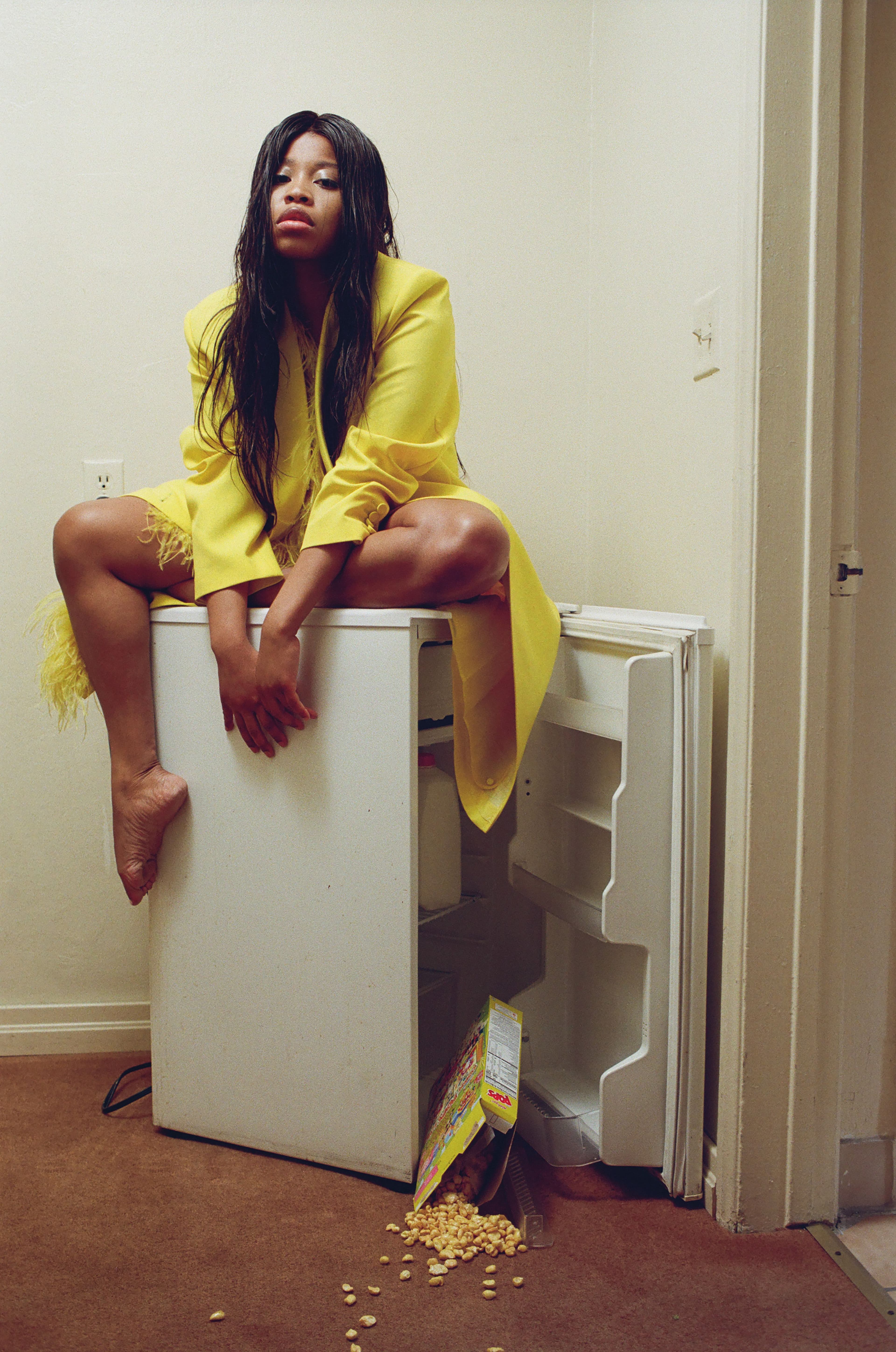
All clothing by Valentino
There isn’t a lot of explanation about who Dre was before the series begins or what causes her to become so unhinged. It is revealed that she arrived at Marissa’s home at some point in their youth as a foster child but was quickly expelled from their care after a violent outburst at a girl’s sleepover. Beyond that, the full source of Dre’s childhood pain is never explored. “There’s a term called repressed memory where you could have something so traumatic happen to you, and you don’t even remember that it happened. Dre has had so much trauma in her life. I don’t know her backstory because she hid it so far from herself that she hid it for me too,“ explains Fishback. “Plus, it’s unnecessary for me to know. When she tells stories, she doesn’t tell them anyway, and everything that she says she believes.“ In one scene, Fishback delivers a spine-chilling monologue in which Dre recounts a fictional story of meeting Ni’Jah and her mother and subsequently being hired to do their makeup. “I love that monologue,“ says Fishback, “because you really thought she believed that. Doing Ni’Jah’s mother’s makeup and that she met Ni’Jah at this brunch, and later told her, ’It felt like I’ve always known you.’ You couldn’t tell Dre that didn’t happen.“
Despite Dre’s violent behavior, Fishback does not consider her a bad person. “I think, when you live in a world of duality, you can’t have good without evil. You can’t have light without dark. There’s a spectrum,“ she says. “You can’t love without fear or love without hate. People say the opposite of love is not hate—it’s fear. They say there’s a thin line between love and hate, and I think that that’s true for Dre. I think when people ask me, ’Who is she?’ I say she’s a girl with a lot of love inside. She really does have a lot of love, but it gets modeled in a way where she doesn’t know the difference between her love and her grief.“
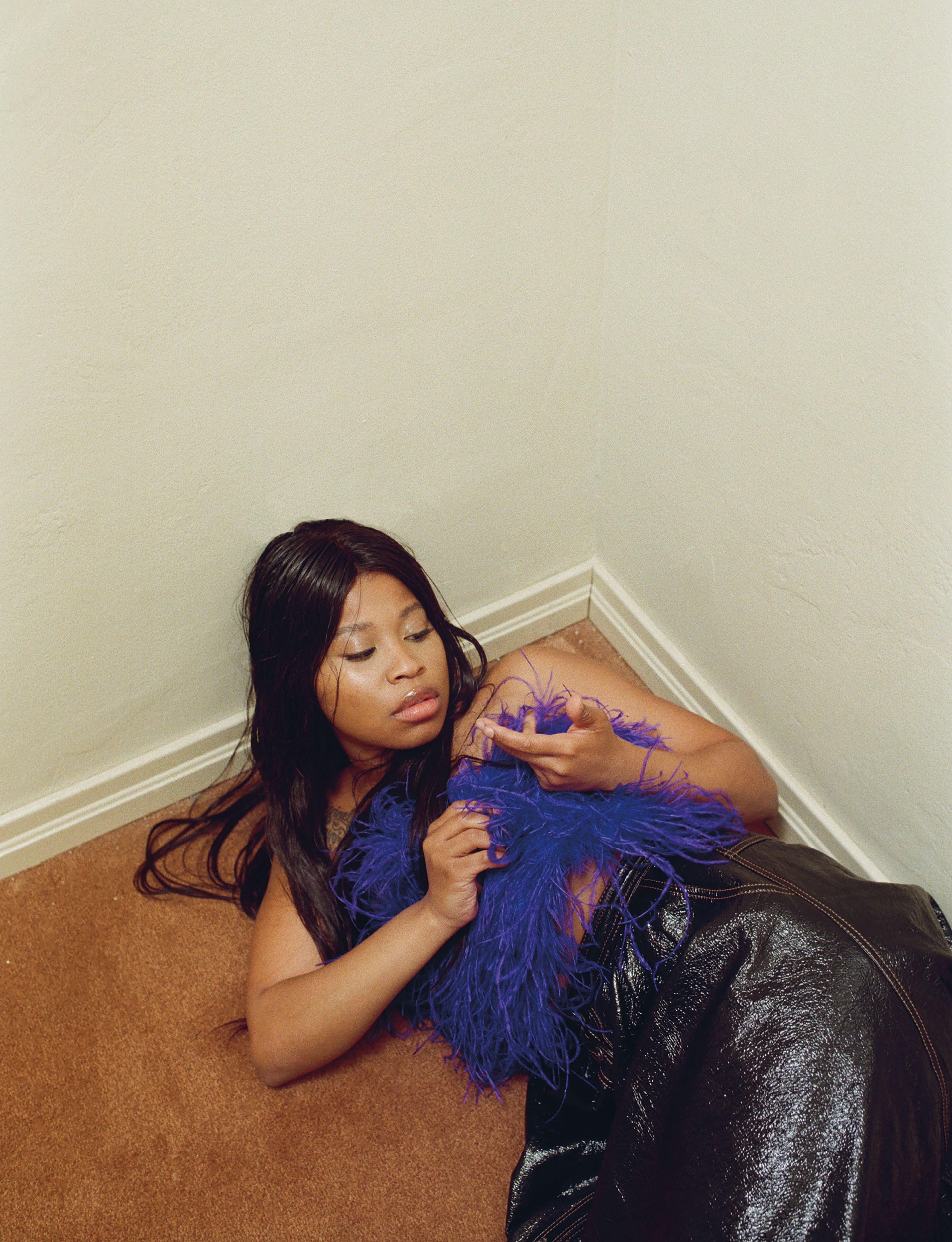
Top by Daria y Maria. Skirt by Miu Miu.
Fishback approaches all of her performances with this level of thought and attention, often spending time journaling in character as part of her intensive preparation. It’s a dedication that she credits to her upbringing in East Brooklyn, where, she says, “you always have to prove something.“ Since she was eight years old, Fishback has been fighting for her spot on the stage—eager to be a child actor, she auditioned three times for a local theater company but only made it to a callback. Undeterred, she and her mother tried another company that ended up being a scam. When her mother later became pregnant, Fishback says she knew she would have to take the initiative herself and began researching free acting programs in New York City on her own.
After some time in an acting program, she was encouraged to apply for the MCC Theater Youth Company, a free afterschool program for local high school students that requires applicants to write their own material, and was admitted. She had also auditioned for the famed LaGuardia High School of Music & Art and Performing Arts but didn’t get in, and instead went to school in Brownsville, Brooklyn, which she recalls “was survival of the fittest,“ and graduated as valedictorian. “I think it was a blessing that when I auditioned for LaGuardia, I never got in,“ she says. “A lot of the LaGuardia kids did come to MCC, so it’s not to say that if I went to LaGuardia, I wouldn’t have been able to write my own stuff, but going to high school in Brownsville, Brooklyn—which is not an easy place to come from, it could be very dangerous—to be able to spend that much more time in that community and with my community allowed me to understand the rawness of humanity in a different way.“
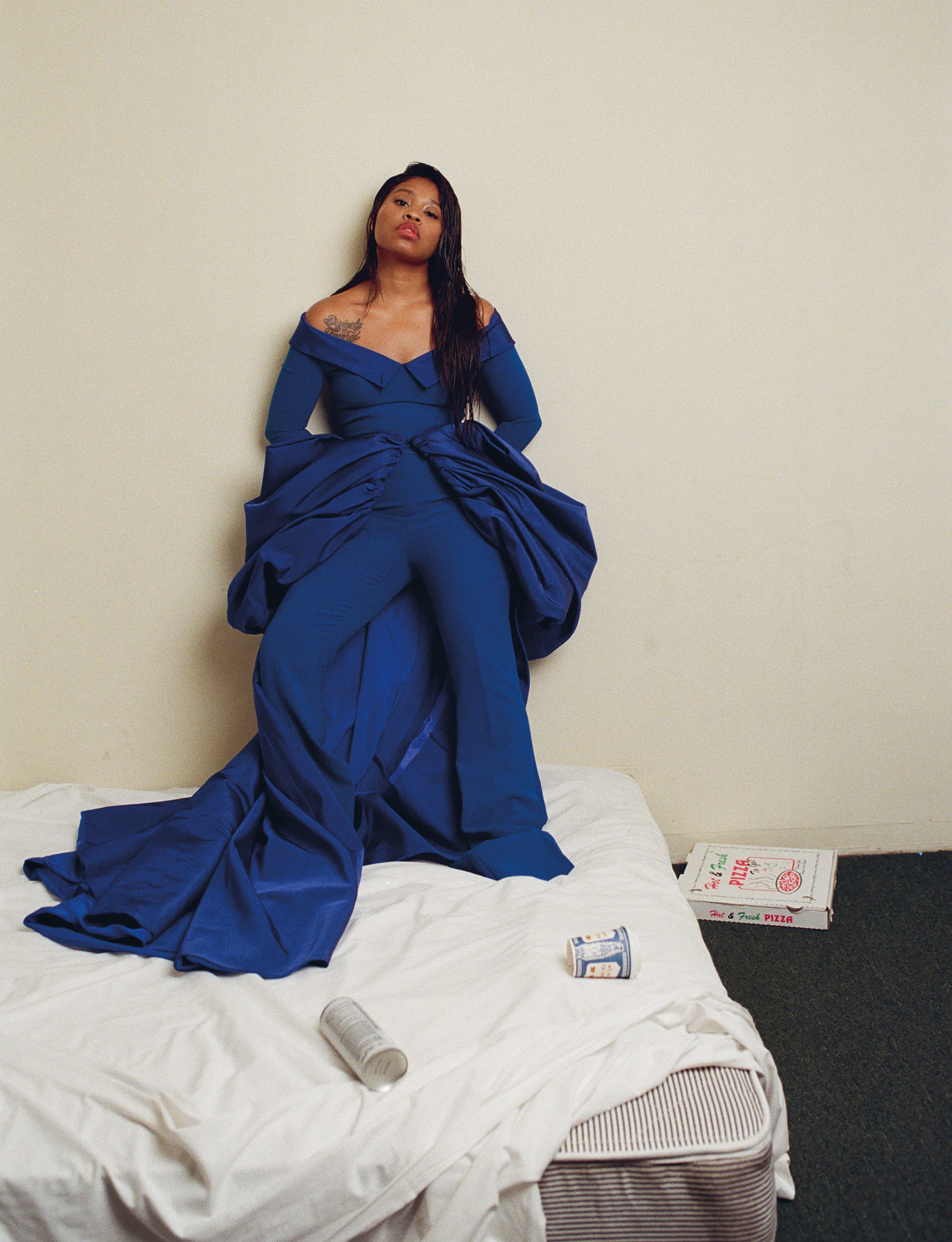
All clothing by Christian Siriano
Fishback then studied in the theater program at Pace University, where she created and starred in Subverted, a one-woman play with multiple characters shining a light on what it is to be Black in America. Originally developed as her honors thesis, the play went on to be performed Off-Broadway and is now being developed into a special by Jamie Foxx. “A lot of times, I was the only Black person in my class. In one class a white boy said that if African-American males in low-income communities dressed normally, they wouldn’t be stopped by the cops,“ recalls Fishback. As she continued to debate with the student, she became increasingly frustrated and stumbled over her words, and as she looked around for backup, she found herself alone. “It was in that moment that I said, ’Okay, for my thesis, for an hour and twenty minutes, this predominantly white university is going to have to sit in my truth and the truth of people who come from areas like mine, who don’t get the opportunity to go to a private university,’“ she says. “It would have been a disservice to all of the people who couldn’t come here if I didn’t tell this story and tell it as raw as possible.“
Writing remains important to Fishback, who says she knows the significance of “telling [her] own truth and not just getting buried inside a character with their own story“ as a way to honor herself and her community. She is currently working on a television series that she has aspirations to develop, as well as a book of poetry that serves as a memoir of her experiences. Fishback hopes that through her poems, a medium she has always practiced and loved, she will be able to connect with those who “come from where I come from,“ as well as an audience who may not have had the same experiences but will relate to her unique perspective. With Swarm and her role in this summer’s upcoming blockbuster Transformers: Rise of the Beasts, her platform only continues to grow. “I realized that one of the deals that I felt like I made with God was that he was like, ’You can have everything that you want in terms of acting, but you’re always supposed to tell your truth from your own perspective,’“ she says. “You know he said, ’You can do other people’s work, you can act in other films, but you must always tell your truth because that’s ultimately going to be the thing that you leave behind.’“
Swarm is now streaming on Amazon Prime Video. Transformers: Rise of the Beasts will be out June 9. Read this story and many more in print by ordering our sixth issue here.
As a nonprofit arts and culture publication dedicated to educating, inspiring, and uplifting creatives, Cero Magazine depends on your donations to create stories like these. Please support our work here.
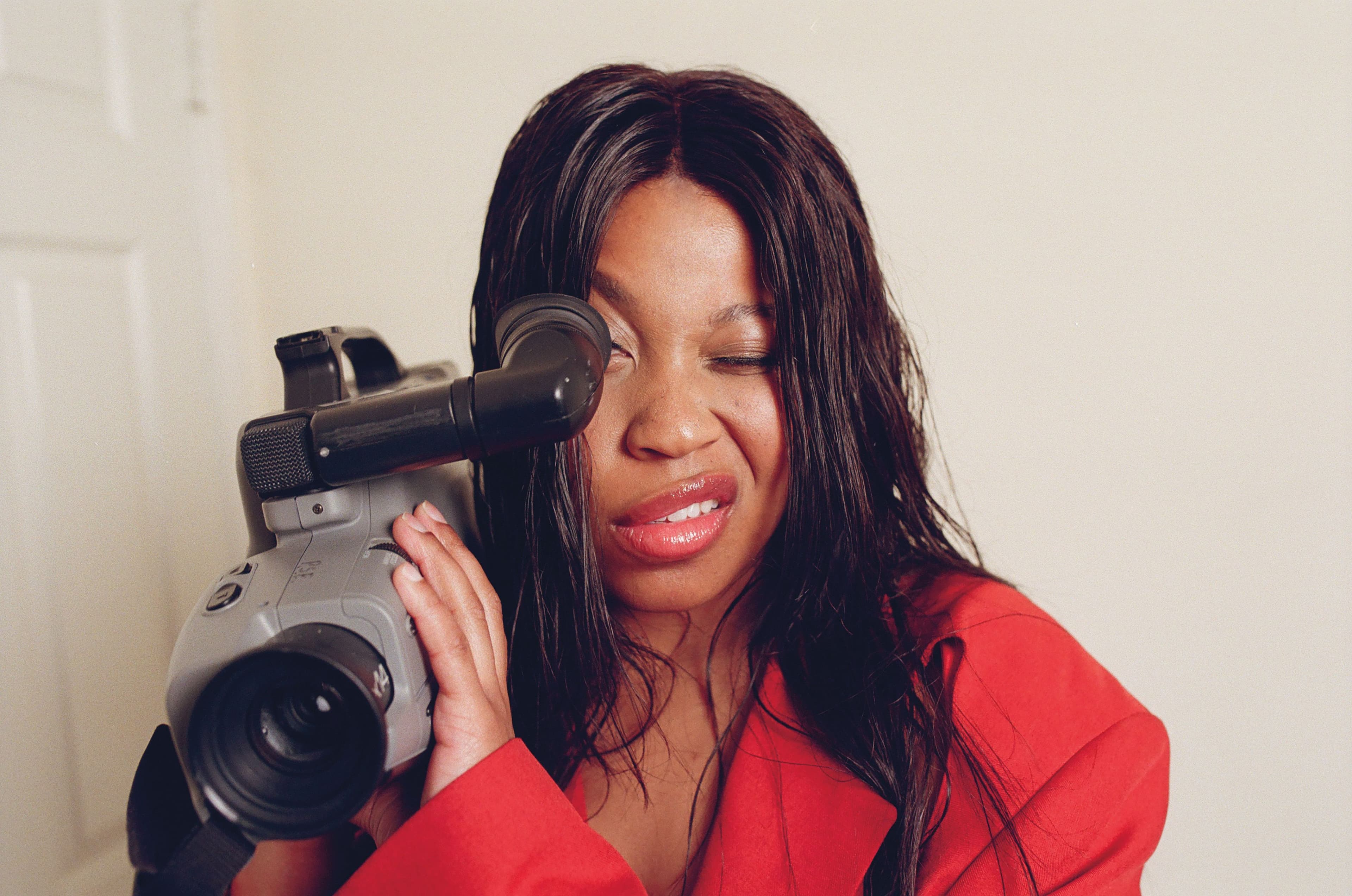
Jacket by Alejandra de Coss
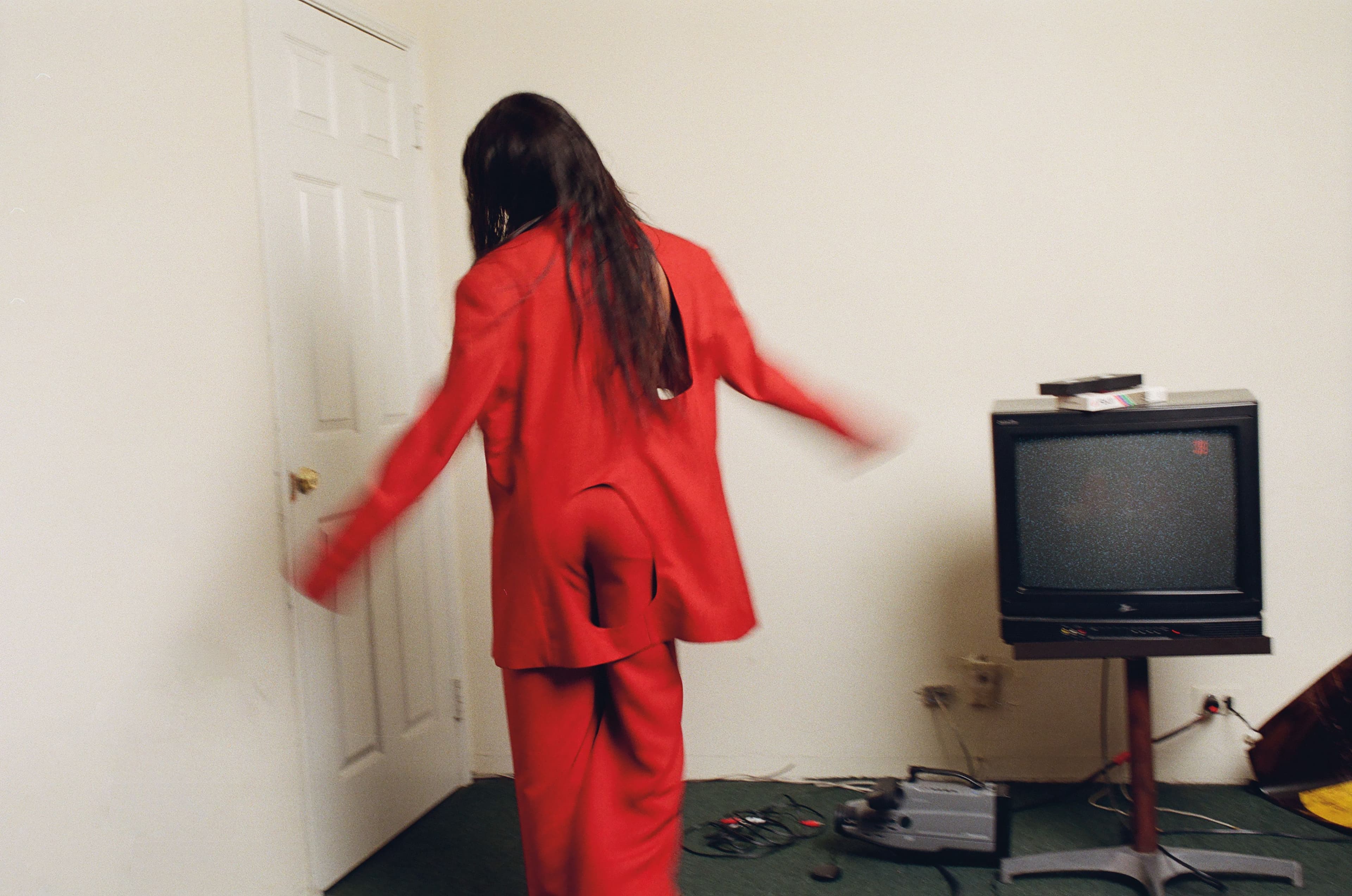
All clothing by Alejandra de Coss
As a nonprofit arts and culture publication dedicated to educating, inspiring, and uplifting creatives, Cero Magazine depends on your donations to create stories like these. Please support our work here.






